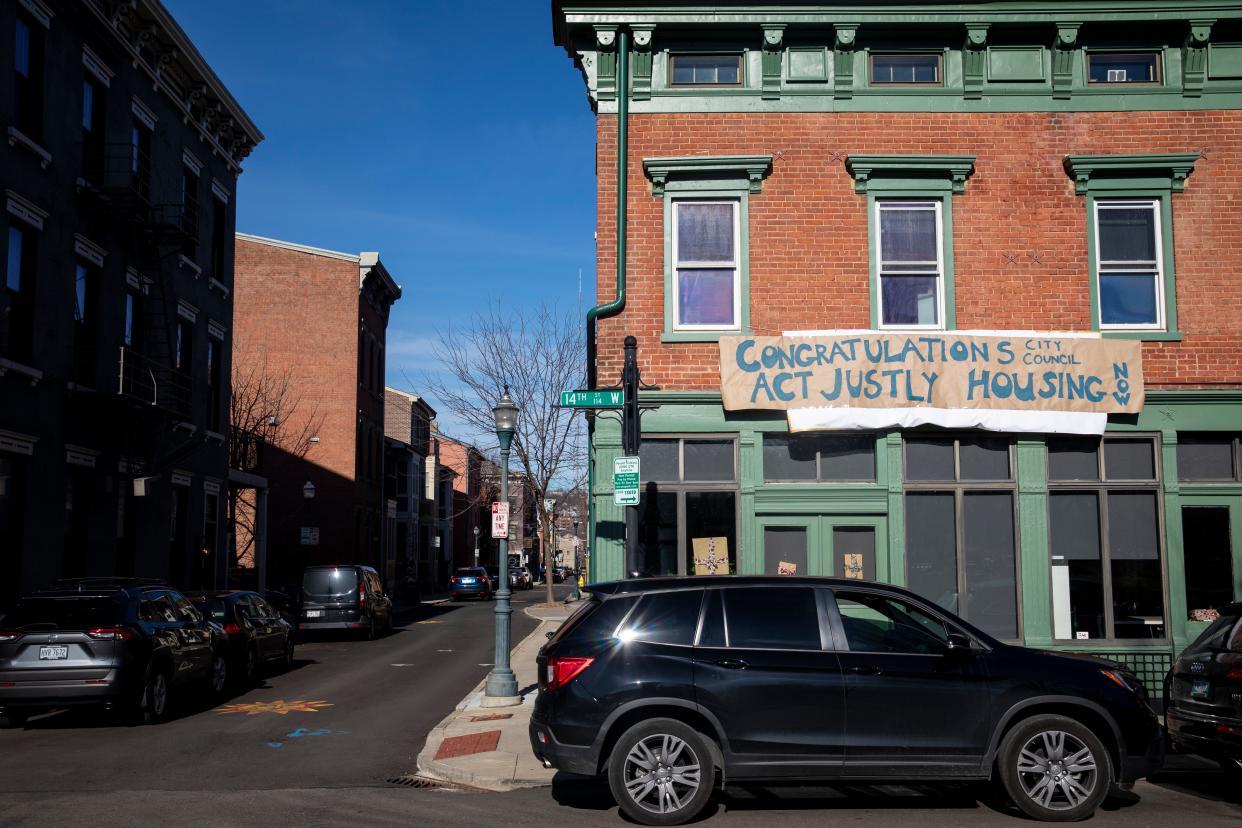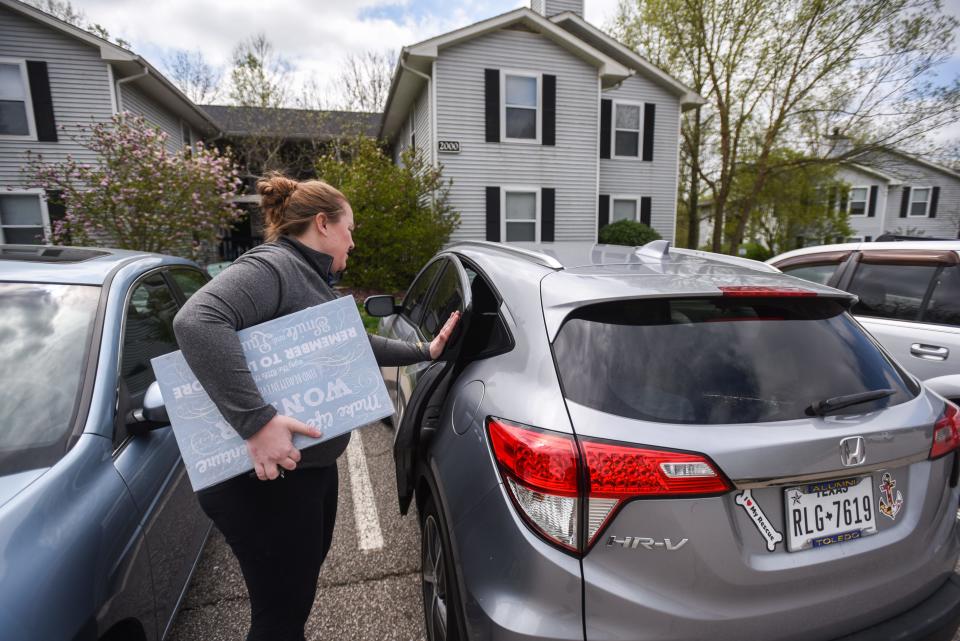Opinion: Cincinnati City Council can and must do better on affordable housing

This is a decisive moment for housing policy in Cincinnati. Residents have advocated, organized and voted to push our city government to address our dire need for affordable housing. However, it’s clear that our work is far from over.
We’re repeatedly hearing a troubling message from our city officials on this topic – that what Cincinnati needs is "housing at all price points." This bears a striking resemblance to the "all lives matter" counter to the Black Lives Matter movement. Both statements are essentially meaningless on their own; they are offered only in reaction to the naming of a pointed and urgent injustice. Both are woefully out of touch with reality and used to undermine righteous demands for action.
Let’s be clear. In Cincinnati, housing is a crisis for people at the bottom of the economic ladder. We cannot honestly read our data any other way, and it’s not confusing to anyone paying sincere attention. Lives are at stake for those of us filling our shelters, sleeping in cars with children and threatened by ever-looming eviction.
There are two pathways to the units we need: extensively funding and managing our affordable housing trust fund, and implementing a smart, inclusionary housing policy, which would require a percentage of affordable units within some market-rate housing projects. Local advocates have researched, consulted with experts and proposed actionable plans for both.
The call for $50 million into our Affordable Housing Trust Fund is backed by thousands of petition signatures, multiple studies and persistent public testimony. Demands for inclusionary housing ring out from hundreds of residents pressing developers to include affordable housing in exchange for tax abatements and bonus density, and from public pushback on an upzoning proposal that glaringly omitted affordability requirements.

Why won’t City Council members put real funding for our trust fund on the ballot again? A similar move in Philadelphia last year won overwhelming support, and a small bump in our earnings tax – back to what we were paying two years ago – would do the trick. Our mayor’s new commitment of some budget surplus to the trust fund is good, but surplus funds are not guaranteed, and at best it will generate no more than $5 million – maybe 50 homes – annually. Most of the other committed funds are loans, not grants; repayment isn’t possible for affordable projects that keep rents as low as we need.
Why, during this once-in-a-lifetime federal funding opportunity, has Cincinnati thrown a mere $5 million of American Rescue Plan money into our trust fund? St. Paul has committed $35 million; Nashville, $40 million; Denver, $28 million; and Minneapolis, about $30 million. Each received less ARP funding than Cincinnati.
Why won’t City Council members commission national experts to do a feasibility study for inclusionary housing? Cincinnati is embarrassingly behind in this area. Detroit, Pittsburgh, Minneapolis, Nashville, Bloomington, Durham and New Orleans have smartly joined most major cities in realizing inclusionary housing policies, while we’re stuck on misguided theory and myths.
Why are we still wasting public incentives on market-rate units? Why are we subsidizing "workforce" units, or those at the upper end of HUD’s affordability scale that don’t match our needs? City households, like mine, at or above 80% of the metro Area Median Income are already living in housing that is affordable to us by federal standards.
Why are we on the "all housing matters" train to nowhere?
Because it’s hard to challenge profit-seeking, and most officials would rather pass. When real solutions come within reach, distraction is a key tactic. Experts on profit-maximizing growth have asserted themselves as experts on good housing policy, and persuaded us that this is simply about overall supply and demand, instead of the discrimination of the market. They count on us to sleep well, believing that investing in luxury housing is equivalent to investing in housing for working-class people, but we have to wake up.
This cannot be the best that our supposedly progressive City Council can do. Let’s move them to do something actually significant before the moment passes us by.
Jennifer Arens is the community education coordinator at Peaslee Neighborhood Center and a Cincinnati resident of eight years.

This article originally appeared on Cincinnati Enquirer: Opinion: Cincinnati City Council can and must do better on affordable housing

